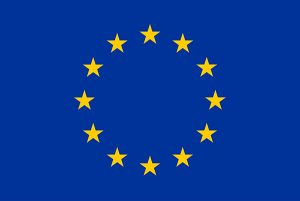In the final episode of the DIAL podcast we’re looking at what’s been learned from DIAL projects about how and when inequality manifests in our lives and what its longer term consequences might be. We’re joined by Elina Kilpi-Jakonen from the University of Turku in Finland. Elina is the Scientific Coordinator for DIAL and, as … Read more
In Episode 5 of Series 4 of the DIAL Podcast we’re in conversation with Andreas Peichl, Professor of Macroeconomics and Public Finance at the University of Munich and Principal Investigator of a DIAL project looking at the impact of childhood circumstances on individual outcomes over the life-course (IMCHILD).
In Episode 4 of Series 4 we’re talking to Professor Sakari Lemola from the University of Bielefeld and formerly from the University of Warwick. Sakari is one of the Principal Investigators of the DIAL project PremLife, which has been looking at what factors can provide protection and increase resilience for preterm children’s life course outcomes. Transcript Christine Garrington … Read more
In Episode 3 of Series 4 of the DIAL Podcast, we are in discussion with Richard Blundell. Richard is the Ricardo Professor of Political Economy at UCL, director of the ESRC Centre for the Microeconomic Analysis of Public Policy at the Institute for Fiscal Studies and the principal investigator of a DIAL project looking at … Read more
by Sreevidya Ayyar, Uta Bolt, Eric French, Jamie Hentall MacCuish, Cormac O’Dea The children of rich families tend to go to better quality schools, have higher cognitive skills, and complete more years of schooling. This blog exploits unique data from the National Child Development study to determine these early childhood factors go on to have … Read more
by Alexander Ludwig and colleagues This blog was first published by VOXeu. After the outbreak of the COVID-19 crisis in the spring of 2020, politicians around the world closed schools and child-care centers together with businesses in an effort to contain the virus. According to the World Bank, around 1.6 billion school children were affected … Read more
In Episode 1 of Series 4 of the DIAL Podcast we’re in discussion with Professor Kjell Salvanes and Dr Helen Wareham to talk about the impact of inequality on the lives of children. Kjell is the Principal Investigator on Growing up Unequal? The Origins, Dynamics and Lifecycle Consequences of Childhood Inequalities while Helen is a Research … Read more
In Episode 5 of Series 2 of our podcast, we talk to Alejandra Rodríguez Sánchez from the University of Berlin and Susan Harkness from the University of Bristol about research from the DIAL funded Equal Lives project on the gendered division of housework during lockdown and whether or not changes that happened were temporary or … Read more
In Episode 11 of the DIAL Podcast, Dilnoza Muslimova from the Erasmus University in Rotterdam talks about birth rank, genes and how well children get on in life and whether and how parental investment matters. Birth rank, genes and later life outcomes was presented at the DIAL Mid Term Conference in June 2019 and is part of … Read more
In Episode 9 of the DIAL Podcast, Nirosha Varghese from Bocconi University discusses her research looking at the links between early childhood sleep and how children get on at school later on. Further information: Early childhood sleep and later cognitive human capital is Marie Curie funded research analysing the relationship between early sleep problems and later cognitive … Read more
Dynamics of Inequality Across the Life-course (DIAL) is a multi-disciplinary research programme consisting of thirteen European projects. The projects examine the sources, structures and consequences of inequalities in contemporary societies. The programme is funded by NORFACE for the period 2017–2021.

This project has received funding from the European Union's Horizon 2020 research and innovation programme under grant agreement No 724363
Interested in learning more about the dynamics of inequality?
Sign up to stay informed about upcoming publications, conferences and workshops.
We will send you a quarterly report on activities across all research projects. For more information on how we store your data, please see our Privacy Policy.
